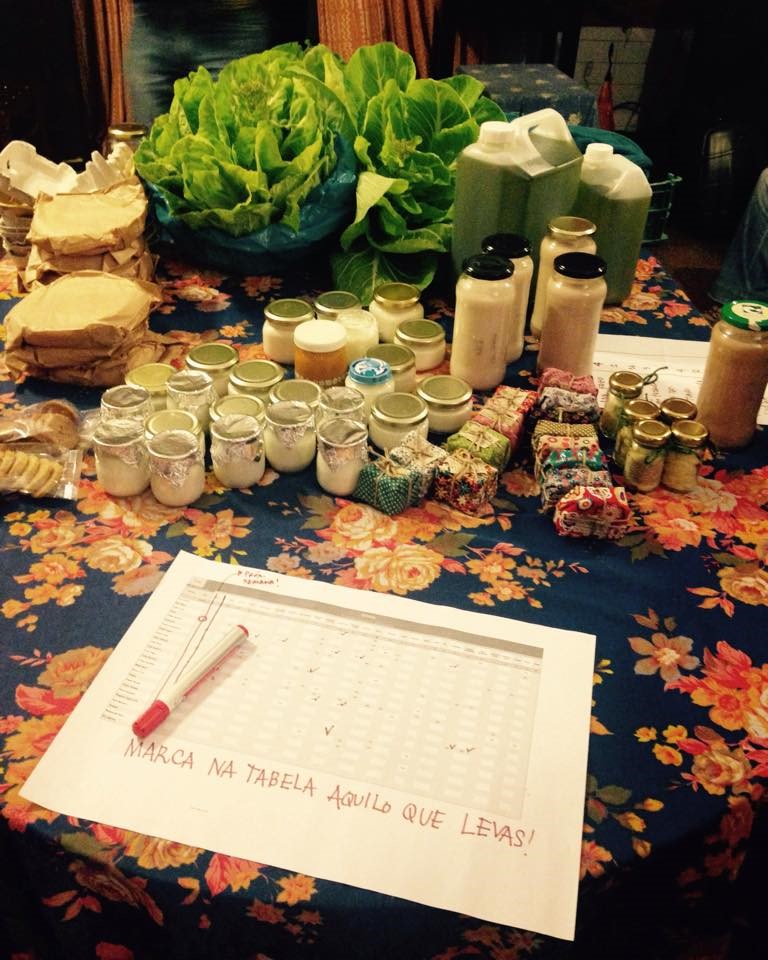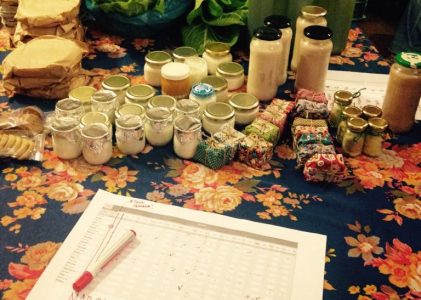Ever since even before I began my PhD, I have been trying to dissect an extinct food exchange network from Porto. The alternative “prosumers” group was called AMEP (Associação para a Manutenção da Economia de Proximidade) and emerged from the local solidarity economy movement ECOSOL. AMEP blended the French model for community-supported agriculture known as AMAP with the use of a social currency. It promoted the active role of all consumers and producers involved, and organized the production, consumption and distribution of food and other essential goods.
From late 2014 to early 2016, AMEP served as a tool for conviviality and emancipation: a useful, literally nourishing pretext for people to meet in a local association every week and collectively take care of their own grocery. I consider it an urban commons. Although it was not originally conceived in academic terms, AMEP empirically developed a framework to perform solidarity economy which instinctively followed Ostrom’s principles for governing a commons.
Whereas it faced many challenges in sustaining the alternative economy it was trying to bring to life, namely concerning communication and the sustainability of the governance model, it also left a legacy for other food networks groups that have meanwhile emerged in the territory.
Drawn from an action-research methodology, I am working on a paper that describes the dynamics of the social currency-based food network as an urban commons through the analytical framework of the commons balance of collaborative economy (Fuster Morell, 2017). By looking at the dimensions of governance, economy, technology, knowledge, and social responsibility, the case study brings evidence of an emancipatory food exchange group in Portugal which gave practical meaning to the aspirations of the local solidarity economy network, ECOSOL.
Dissemination
Participation in conferences
June 2018 | Social mobilization and the commons: a virtuous circle? | Barcelona
Organized by ICTA/UAB and IASC (International Association for the Study of the Commons), Barcelona.
November 2018 | Social Solidarity Economy and the Commons | Lisbon
Organized by ISCTE-IUL (University Institute of Lisbon). The theme of the first edition was “Envisioning sustainable and post-capitalist futures”.
Media articles
A economia nas nossas mãos – Epílogo à Rede de Economia Solidária do Porto, in Jornal Mapa nº 19 (Fevereiro-Abril 2018)

